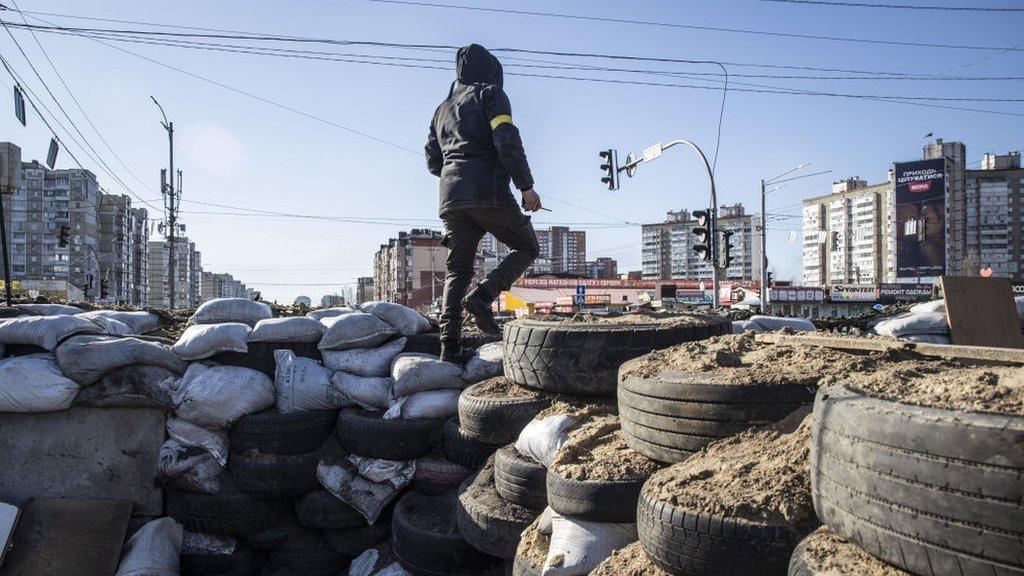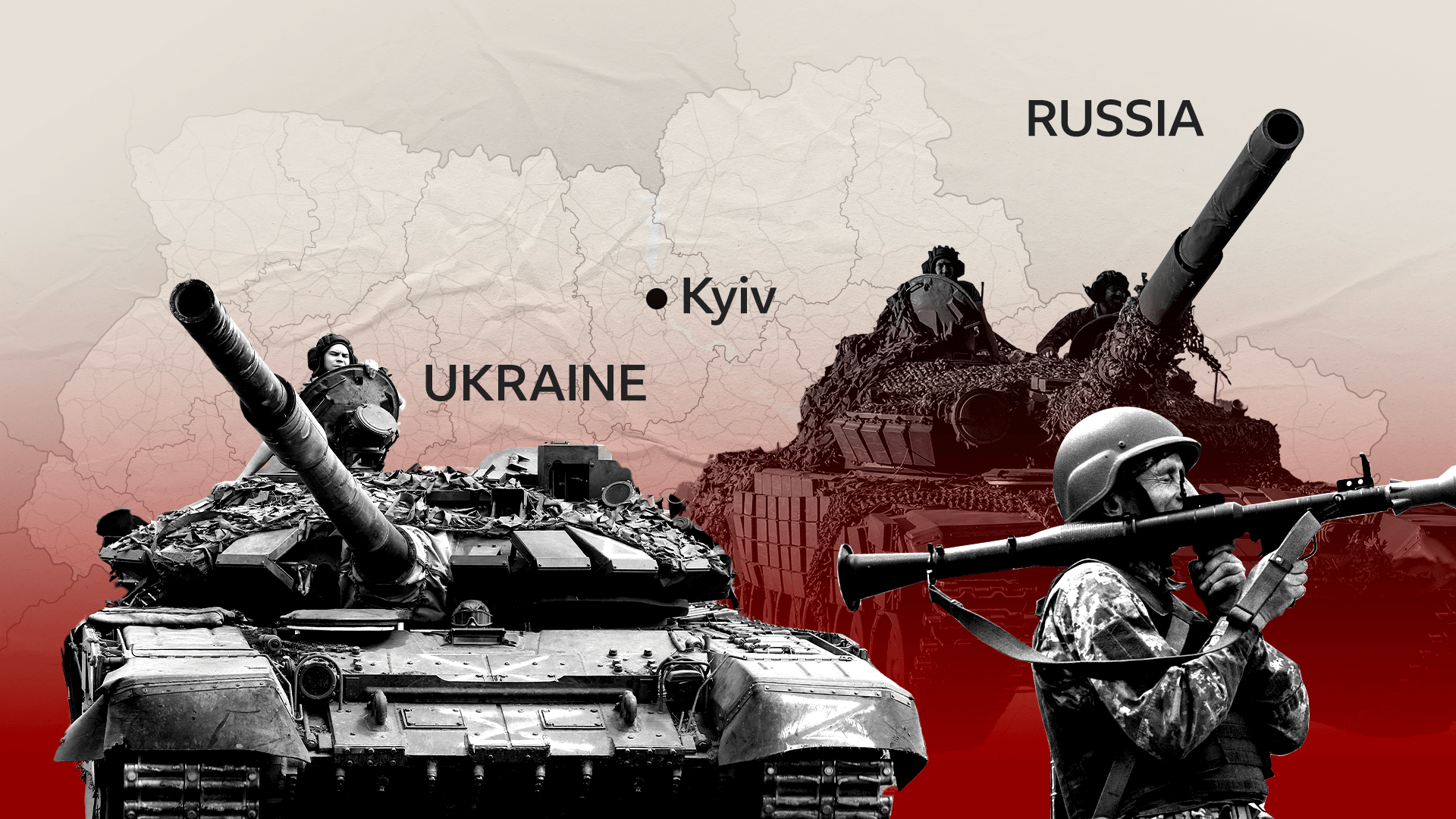War in Ukraine: What happened on day 17 of Russia's invasion
- Published
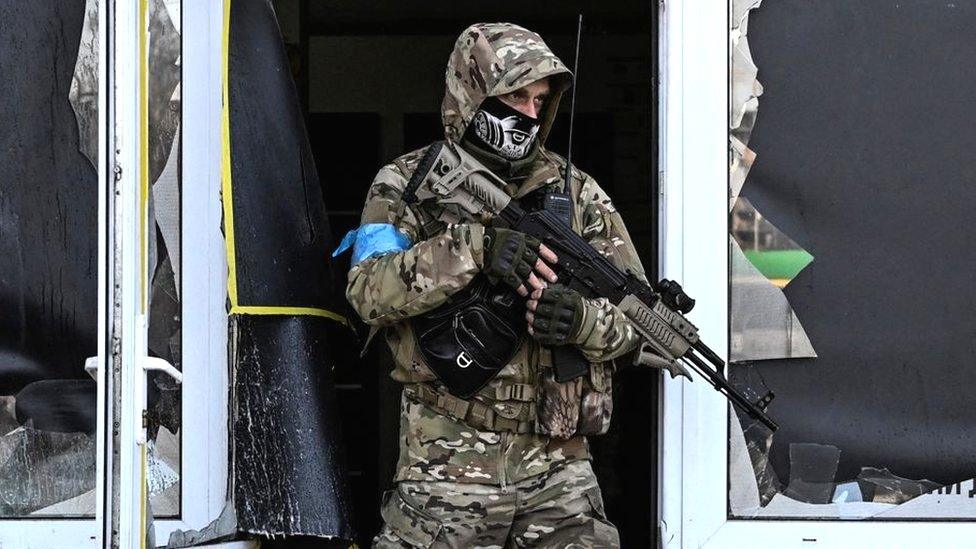
Ukrainian forces are preparing for a possible ground assault on the capital, Kyiv
On day 17 of Russia's invasion of Ukraine, civilians made fresh attempts to flee besieged cities amid heavy shelling by Russian forces, while intense fighting was reported on the outskirts of the capital Kyiv.
Several humanitarian corridors were proposed for people to evacuate from areas heavily attacked, including from the southern port city of Mariupol, the city of Sumy close to the Russian border, and towns and villages just outside Kyiv.
British intelligence said the bulk of Russian forces were now within 25km of the centre of the capital and Ukrainian officials said they feared that Moscow was preparing to launch a large-scale assault on Kyiv.
Fresh attempts to evacuate cities
Early on Saturday, the BBC's Abdujalil Abdurasulov in Irpin, one of the towns outside the capital that was being evacuated, said it was difficult to say if the latest humanitarian ceasefire was holding because explosions and artillery fire - including from the Ukrainian side - could be heard nearby.
Watch: Abdujalil Abdurasulov is in Irpin, where people are forced to flee via a makeshift river crossing
Some of those desperate to leave the city of Mariupol, which has been left with limited access to food, water and power after two weeks of bombardment, said they were prepared to risk the dangers of an evacuation because they felt it was no longer safe to remain in the city. However, by Saturday evening humanitarian aid and buses needed for the evacuation had still not arrived in the city.
Ukraine's Deputy Prime Minister Iryna Vereshchuk later said that about 13,000 Ukrainians had been evacuated through humanitarian corridors on Saturday, but that no one had managed to leave Mariupol.
Ukrainian officials also reported that seven civilians had been killed the previous day after Russian troops fired on a convoy of women and children leaving a village north-west of Kyiv. There has been no independent verification of the attack and no comment from Moscow.
Russia issues warning on arms supplies
Russian Deputy Foreign Minister Sergei Ryabkov warned that Western convoys delivering arms to Ukraine could be seen as "legitimate targets" for the Russian Armed Forces.
"We have warned the US that pumping weapons into Ukraine, which they have orchestrated, from a number of countries, is not just a dangerous move - it is a move that turns these convoys into legitimate targets," Mr Ryabkov said during an appearance on state TV.
He said the transfer to Ukraine of weapons such as air-defence systems and anti-tank missiles was "reckless" and that the US needed to take Russia's warnings seriously.
Zelensky announces 1,300 troop deaths
Ukraine's President Volodymyr Zelensky told reporters that 1,300 Ukrainian troops had died in the conflict so far, and that around 500-600 Russian troops had surrendered to Ukrainian forces as of Friday.
Mr Zelensky said that far larger numbers of Russian soldiers had been killed, but that he was not happy about any of the reported deaths.
"It doesn't give me joy that they lost [an estimated] 12,000, it doesn't make me happy... this is not the way I see the world," he said.
The BBC has not been able to verify his claims.
Protests over mayor's abduction
Meanwhile, residents of Melitopol, a small city in south-eastern Ukraine, took to the streets to protest against the alleged abduction of the mayor by Russian forces.
On Friday, Ukrainian officials posted video they said showed Ivan Fedorov being led away blindfolded. They said he had been dragged from his office with a bag over his head after refusing to co-operate with invading Russian troops.
Allow X content?
This article contains content provided by X. We ask for your permission before anything is loaded, as they may be using cookies and other technologies. You may want to read X’s cookie policy, external and privacy policy, external before accepting. To view this content choose ‘accept and continue’.

Measures to protect a city's treasures
In the western city of Lviv, a huge operation has begun to protect artefacts in the Unesco heritage-listed city centre, including the removal of hundreds of items from display in museums.
Nearly every one of the 1,500 artefacts on display at the National Museum of Lviv - the largest art museum in Ukraine - have now been moved, with many placed in basement storage rooms, the BBC's Joel Gunter reported.
The picturesque city has been left untouched, so far. But it is bracing for war, with checkpoints on main roads and soldiers on streets.
Russia's invasion of Ukraine has sent about 2.5 million Ukrainians fleeing to neighbouring countries. Poland says more than 1.6 million people have fled there, while Moldova says it has reached "breaking point" in its ability to cope with refugees.

War in Ukraine: More coverage
MERCENARIES: How Russia is recruiting reinforcements
HERITAGE: Lviv hides its priceless artefacts
IN DEPTH: Full coverage of the conflict

- Published12 March 2022
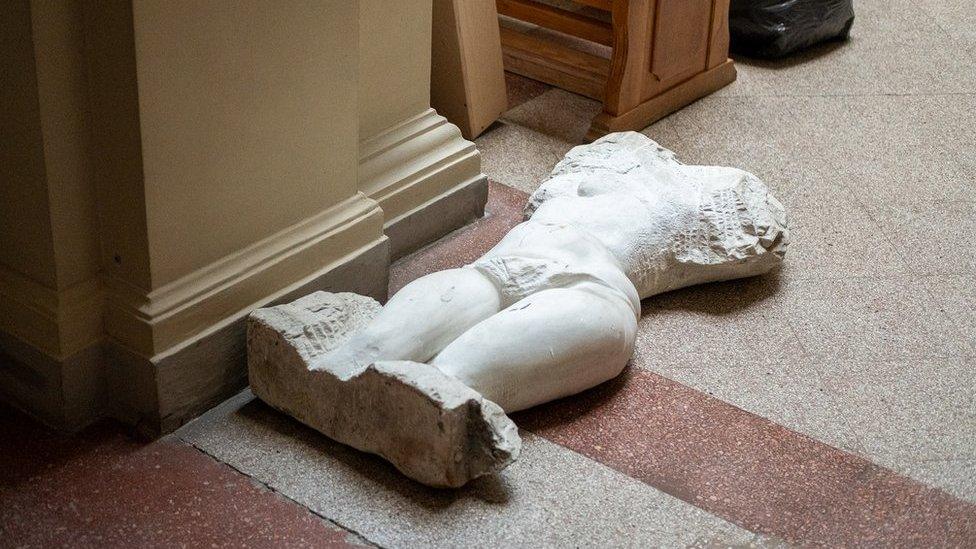
- Published12 March 2022
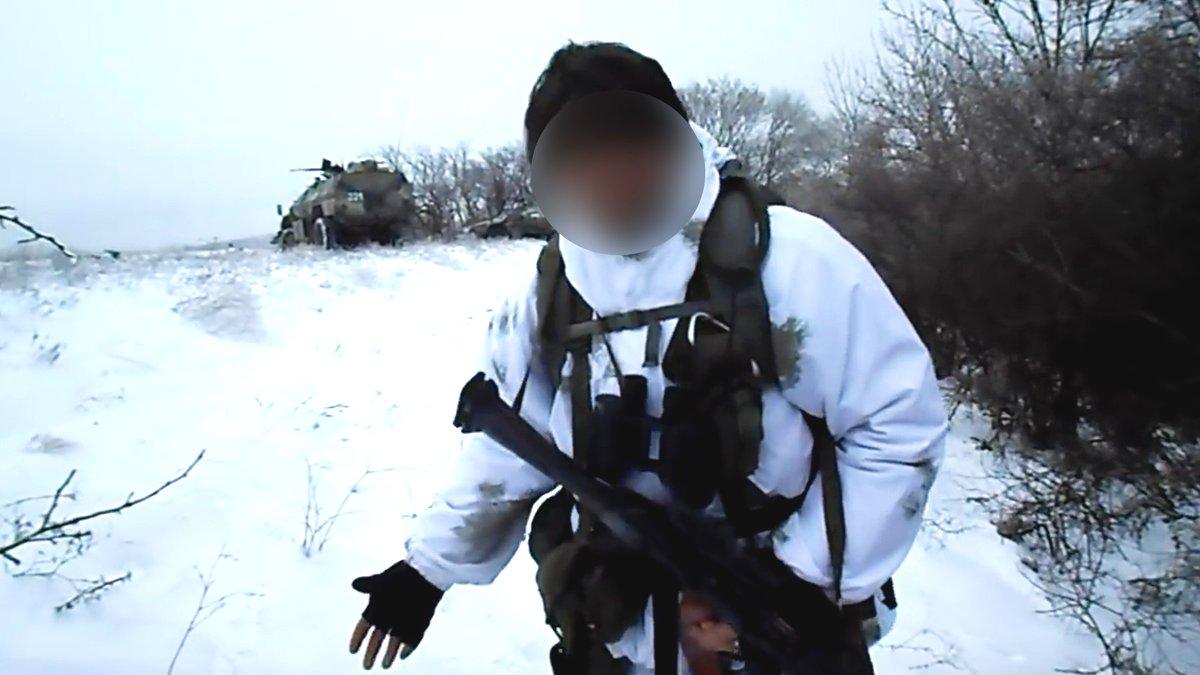
- Published12 April 2022
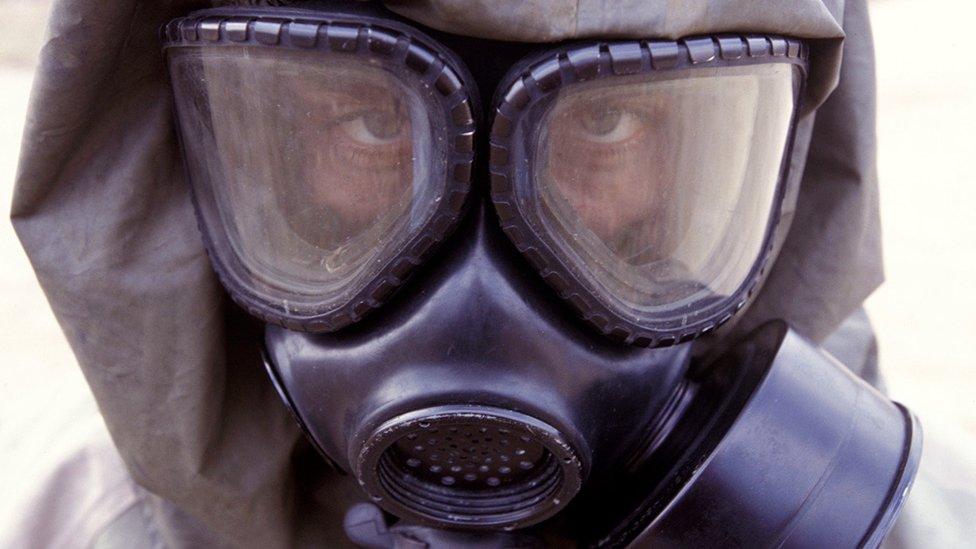
- Published11 March 2022
